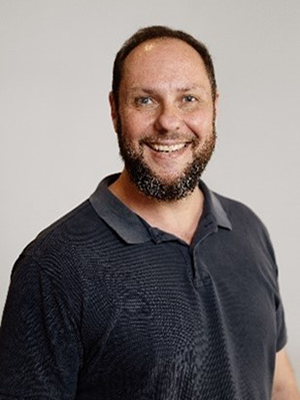South Africa’s place in the world is becoming harder to navigate. The geopolitical map is being redrawn by rising authoritarianism, disinformation wars, cyber sabotage, and increasingly complex regional conflicts. For a state that sits at the junction of Africa’s economic ambitions and the pressures of global power politics, understanding these shifts is no longer optional. It is strategic survival.
At the North-West University (NWU), the Centre for Geopolitical Security and Strategy (CGSS), led by Professor Barend Prinsloo, is trying to bring order to this turbulence. “The CGSS promotes strategic stability and security from an African point of view,” he says. It is a modest description for a unit that aims to shape how South Africa thinks about – and prepares for – the next decade of uncertainty.
The centre’s mandate is deliberately broad. It “produces expert opinions, analysis, policy reviews, short learning programmes and professional security risk products for government, security services and regional bodies.” It also conducts academic research on issues that affect “the future and sustainability of human security.” In other words, it attempts to close the widening gap between scholarly expertise, policy needs and the realities of on-the-ground threats.
This matters because South Africa is in the middle of redesigning its National Security Strategy. That process demands clear thinking about corruption, cyber vulnerabilities, intelligence failures, criminal networks, energy insecurity and the geopolitics of great power rivalry. As Prof Prinsloo explains, the centre’s research matters precisely because “the CGSS supports the development of South Africa’s next National Security Strategy and helps to address related capacity gaps.” The work is intentionally practical. “The research is applied research that can be used in the South African, regional and continental security environment.”
What distinguishes the centre from the many think-tanks littering the global security landscape is its commitment to African-centred production of knowledge and skills. “The CGSS links research with skills transfer and coproduction,” says Prof Prinsloo. Alongside peer-reviewed publications, it “offers specialised short courses, hosts dialogues and provides tailored risk and analytical products.” The approach is unusual in a sector dominated by either academics who do not train practitioners or consultants who produce analysis without building national capacity.
Its partnership with the Institute for Security Studies (ISS) signals a desire not to duplicate existing expertise but to strengthen continental security networks. Another rare feature sets the CGSS apart: the Education, Training and Development Practices SETA has appointed the centre to create a Research Chair in Security Studies. “This gives the centre a mandate to develop scarce skills for the security sector, which most similar centres do not have,” notes Prof Prinsloo. The chair offers something South Africa has long lacked – a formal academic-policy pipeline for strategic security expertise.
Looking to the future, Prof Prinsloo argues that the centre is preparing for a more demanding era. Because the chair is backed by the SETA, the CGSS “will expand accredited and short learning programmes for security services in the public sector, oversight and other security practitioners.” It plans to use its African partnerships – including with SADC-linked platforms and regional universities – “to position itself as an African source on security strategy.” It also intends to produce “faster, policy ready products on current security threats” to feed directly into national planning. In an age in which disinformation campaigns move faster than bureaucracies, speed is strategy.
South Africa’s global role is often described in terms of diplomacy, trade or continental leadership. But effective leadership requires credible security thinking. The CGSS is quietly building the infrastructure for such credibility. A more secure and strategically aware South Africa is better positioned to influence global debates, engage major powers on more even terms and strengthen regional stability.
Prof Prinsloo underscores one final point: the new SETA Chair provides “a formal channel” for departments in the security cluster, state-owned enterprises and private risk units to shape training and research. “Early engagement will help these stakeholders to align CGSS outputs with their own needs.” In a fragmented world, alignment may be South Africa’s most underrated security asset.

Professor Barend Prinsloo
